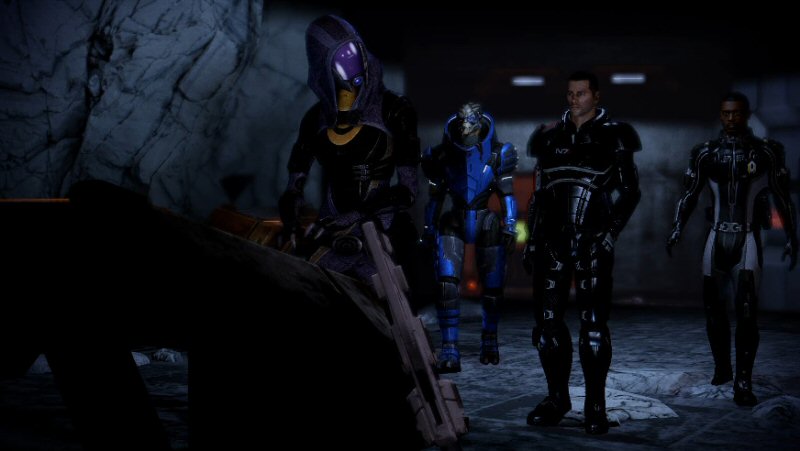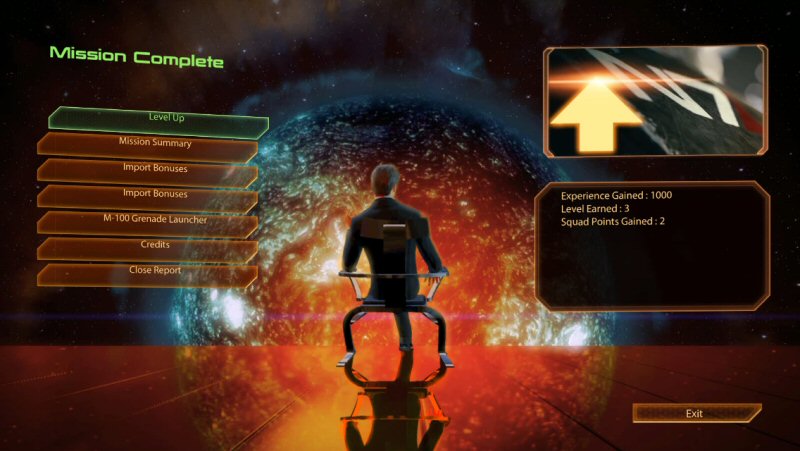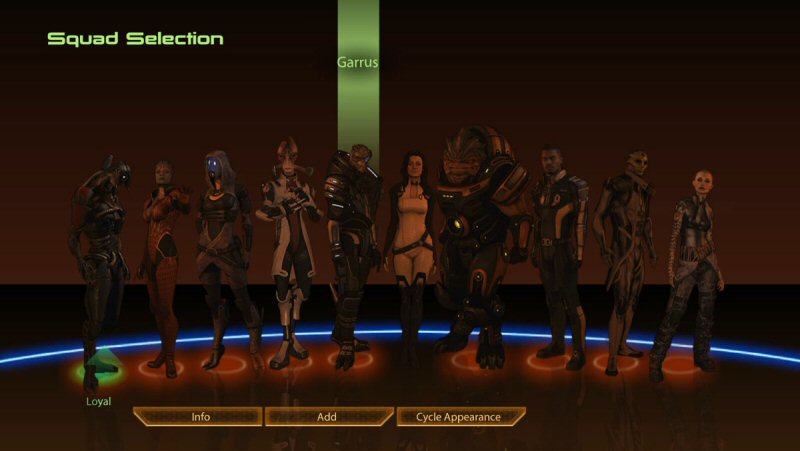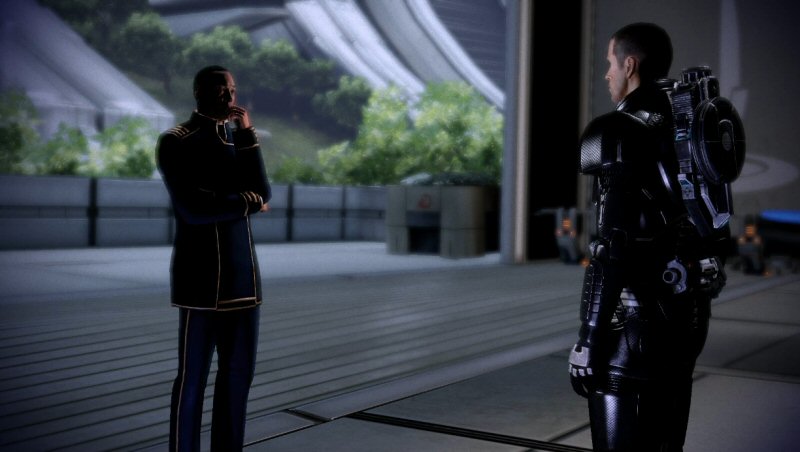Mass Effect Retrospective 24: Collectors Addition
After the mission on Freedom’s Progress we discover that Cerberus managed to build the Normandy 2. There’s a lot to unpack with this idea, and so I’m going to take the problem of Cerberus and their unlimited (yet somehow secret?) GDP, and put that discussion off until Mass Effect 3. For now, let’s just roll with it.
Besides, as ridiculous as it is for Cerberus to build a better version of the most advanced ship in the galaxy, this reveal is only the second most implausible thing in this scene. The real stunner is that Joker is already working with Cerberus.
Joker
I love Joker in Mass Effect 2. Seth Green completely nailed this character. He’s just irreverent enough to be funny, but not such a clown that you can’t picture him joining the military[1]. Even better, Joker is actually
funny this time around. His jokes in Mass Effect 1 mostly fell flat[2] but here in Mass Effect 2 the writer seems to have found his voice.
On the other hand, Joker’s signing up with Cerberus is at least as implausible as randomly bumping into Tali on Freedom’s Progress. This guy worked his ass off to get to the top of the class at the Alliance despite his serious disability. He had an incredible assignment on the first Normandy, and there’s no reason to expect he wouldn’t be given another equally prestigious position.
I realize that not everyone goes to the military and so not everyone really gets how ferociously loyal military people tend to be, but there’s just no way he left the Alliance. And note that Joker says he was “grounded”. The Alliance grounded their best pilot? For no reason? Once again, instead of making Cerberus smart, the writer has made the Alliance stupid.
The idea of Joker taking a civilian job is enough of a stretch, but
Cerberus? And if he did actually join with Cerberus, it would be a gut-wrenching decision that haunted him. But here he acts like the move is about as controversial as switching cable providers.
But Shamus! The Normandy was a dream ship and he loved it! He left the Alliance so he could fly his old ship!
Nice try, strawman apologist, but Joker didn’t know about the Normandy 2 until
after he took a job with Cerberus.
The game claims that Joker signed on with Cerberus because he heard they were bringing Shepard back to life[3]. That’s a really incredible claim. Given the reputation of Cerberus, why in the galaxy would Joker believe them? He’s going to sacrifice his entire career (remember in the last game the incredible struggles he faced to get where he was?) because terrorists claim they can bring his commander back to life? Does that sound like something he would believe? How did he know they weren’t going to feed him to a thresher maw to test the effects of feeding pilots to thresher maws?
When you meet him again, does he express a level of affection matching these actions? Does he act like he loves Commander Shepard more than his career and his reputation? More than his own self?
So Joker being here isn’t just
one implausible thing. It’s
three.
- The Alliance would ground their best pilot, who had done nothing wrong[4].
- Joker would leave the Alliance, even though he dedicated his entire adult life to his career.
- Joker would then join up with a known terrorist organization. Not only that, but the move doesn’t even seem like a big deal to him.
Sure, you
could devise a story where this happens. But this idea is too unlikely to be hand-waved in a single line of dialog. If the writer has a story to tell, they need to put up or shut up. You can’t gloss over stuff like this and expect us to continue to take the world seriously. Especially not with regards to characters. Especially not in a game selling itself so hard on the idea of “it’s all about the characters”.
If nothing else, at least let us
ask Joker about this. Use a give-and-take dialog with Joker to portray a more nuanced picture of Cerberus. Maybe Joker thinks their reputation is all propaganda? Maybe Cerberus did something nice for someone that he knows? Based on what we see in the game, they’re either monsters or idiots[5] and not someone Joker would ever trust, much less join.
Heck, at least make Shepard go to the Citadel and recruit Joker personally. It would still be a stretch, character-wise, but at least it wouldn’t require Joker to take the word of Cerberus at face value. And the shock of seeing Shepard alive might help smooth out the implausibility of going AWOL.
The Normandy is Back!
Do you remember in the Superman movie when he lost his powers in the opening scene and then got them back ten minutes later? No, because that would be a lame, nonsensical story.
The game plays all this dramatic music when the Normandy-2 is revealed. The writer clearly thinks this is supposed to be a big emotional moment. But they don’t know how to build emotion, so they mimic the most superficial elements of the medium: Camera angles and music.
When young John Connor lowers his pet Terminator into the molten steel, we don’t get choked up[6] because of the music or the camera angles. Those things heighten the emotions we’re
already feeling because this moment is the culmination of the last two hours of drama. Music and camera angles do not
create drama by themselves.
We haven’t even needed the Normandy yet, so it’s no like we’ve had a chance to reflect on how much we miss it. It’s like Superman losing his powers for ten minutes, and in those ten minutes nothing happens that requires the use of his powers.
From a storytelling perspective, this feels flaccid because Shepard didn’t do anything to earn this. Shepard made no sacrifices. He didn’t fight for it. He didn’t even have to
ask for it. It was just given to him. The appearance of the bigger, better Normandy is just another writer-imposed miracle.
We’re a couple of hours into the game now. This rearranging of plot elements is both overlong and rushed. The writer needed to change too many things at once, and so we’ve spent all this time contorting the old story into this new direction. A lot of it didn’t make sense and the rest of it wasn’t needed, but they finally have the stage set now: Shepard is back, he’s got his old crew, a rebuilt ship, a new boss, and he’s rounding up people to stop the Collectors from abducting human colonies.
And you know what? The game could still recover from this. It’s a messy and ugly hack job to bend the plot into this shape, but now that the worst of it is over we could probably settle in and enjoy the adventure and drama.
Except, we came all this way and the story has nothing to offer us.
Who are the Collectors?
So we’re fighting to save people that we don’t know, never see, are never depicted in the story, and are barely acknowledged by the dozen or so main characters in this game. So to make up for this lack of dramatic motivation, the story needs to present a really vibrant, interesting villain. They need to be provocative and engaging. I’m talking about
Hans Gruberlevels of interesting, here. The player needs to spend the whole game thinking, “Man, I can’t
wait until I get to kill these assholes.” They need to be the guys we love to hate.
I’m sure you can see where this is going.
The Collectors are our adversary in this game. They’re replacing the role performed by the Geth in Mass Effect 1: They’re the guys you shoot on your way to the goal. But they’re a new addition to this universe. They weren’t mentioned in Mass Effect 1. So the writer needs to quickly build them up and explain how they connect to the rest of this universe. In Mass Effect 1, that was done by having characters talk about the Geth on Eden prime. But in this game we spend the intro shooting Cerberus robots. So now the introduction is over and we still don’t know who we’re fighting against.
Let me ask you some questions about the Collectors:
What do the other races think of the Collectors?
I don’t mean, “What does the codex claim people think of the collectors?” I’m talking about the stuff that’s part of the dramatic framework of this story. I’m talking about stuff that appears in the cutscenes and is conveyed by established characters.
Do the other races think of the Collectors as a loser race because they seem to be so few, and have no political power? Or are they wary because the Collectors seem to have so much advanced technology? Have the Salarians ever tried to spy on them? Have the Asari ever tried to contact them? Do the Turians consider them a military threat? Does anyone ever remark that they’re the only sapient bipeds in the galaxy who run around stark naked? Does anyone have an opinion on that?
Apparently not. They never seem to come up in conversation.
The codex claims the Collectors trade technology for biological specimens. How does this work? Do they speak intelligibly? Are people afraid of them? Intrigued?
What do your companions think of the Collectors?
Based on what we see in the game, they don’t. They never characterize the Collectors through commentary.
If you want them to be mysterious and reclusive you could put some dialog in the game to show that people are curious about them:
“It’s hard to believe we’re actually going to see the Collectors up close. I’m over 500 years old and I’ve never seen one.”
If you want the player to hate them:
“After what the Collectors did to my mother / village / squad / dog, I’m going to make them pay!”
If you want them to seem ominous:
“They used to show up sometimes when I was standing guard on the Citadel. As far as I know, they never spoke to anyone. I don’t even know what they were doing there. They’d just show up and stare right through you. They were never armed, but everyone was always on edge anyway. It wasn’t like they hated us. It was like they didn’t regard us at all. We don’t matter to them. It still gives me the creeps.”
Just, you know, establish your villain. Make them part of the world. Make us care. Make us want to stop them.
Tell a story.
But no. In a game all about building a team, not one of the 10 core characters has a backstory or loyalty mission connected to the main villain or plot of the game.
What does the average peasant think of the Collectors?
Spooky? Frightening? Are they even aware of them? Just how fringe are the Collectors?
The Geth sprang from one of the most interesting events in the history of the Mass Effect Universe. Their appearance alarms the council and Tali’s stories reinforce their mystery and menace. Ashley and Kaiden are both surprised to see Geth up close, which again reinforces their mystery. Ashley is shaken by the damage they’ve done and has a very personal grudge against them. On top of this, the Geth are led by Saren, who has complex relationships with both the Council and Shepard’s best-buddy Anderson. He’s got a story and an agenda. Saren also has Liara’s mother as his chief advisor. On top of all that, Saren is himself led by Sovereign, who gets a bit of dialog with Shepard and manages to spook his companions.
My point is that we know who the villains are, our allies know who the villains are, and this knowledge contributes to the drama. We see other characters in the world form opinions, talk about, and react to the villains.
In contrast, the Collectors don’t seem to be connected to the gameworld. They’re just generic space-bug mooks. They don’t have any stories, or backstories. Don’t don’t seem to have an impact on galactic history or a relationship with any of the numerous existing factions or characters. The people on the Citadel aren’t worried about them, your team doesn’t seem interested in them, and we don’t have any connection to their victims.
(Yeah, they have Harbinger, but we’ll talk about Harbinger later.)
TIM says they’re “enigmatic”. Of course, TIM himself is called “enigmatic” by the codex. I think this writer liked the word enigmatic because they thought it would let them weasel out of having to fill in all these blanks in their story.
And no, this doesn’t make them “more mysterious”. Keyser Soze is mysterious. But his mystery doesn’t come from the fact that we don’t know who he is. His mystery comes from the stories Verbal Kint tells us, and from the terrified way his victims react to him. For the Collectors to be mysterious, we’d need the other characters in the story to react to them. This isn’t “mysterious”, it’s
vague.
Later it’s revealed that they’re descended from the Protheans, but that doesn’t happen until halfway through the game, and it doesn’t make them any more interesting or connected to the rest of the world. It might make them more interesting to Liara in an academic sense, but the writer already ditched her.
Mordin has a couple of lines about how the Collectors are “culturally dead”. That’s certainly the
start of an interesting idea for a spooky villain. And that would be fine if we wanted to keep them distant and mysterious. That would be a bit like the Aliens franchise, where the Xenomorphs are just space-monsters and the story is really about the potential victims.
But like I said
last week, the colonists are a no-show in this story. The story doesn’t engage us emotionally with the Collectors and it doesn’t engage us with their victims. Leaving the Collectors vague would have been fine if it meant more screen time of the colonists we’re trying to save. But this writer refuses to spend time building up the villain or their victims, and instead they’re spending all their screen time on cutscenes where TIM chain-smokes and Shepard acts like a dunce.
The writer had to retcon half the galaxy to get Shepard into this position of working for Cerberus, and when it’s over we’re saving people we never see from monsters with no personality by building up to a suicide mission that isn’t really explained until the story is nearly over.
Having Your Cake
The writer simultaneously wants to make sweeping changes to the established universe, but they have no desire to explain, justify, explore, or even lampshade most of it.
They want to blow up the Normandy in a dramatic battle to get the story going, but they also want you to still have the Normandy. They want to have a character come back from the dead, but they don’t want to explore how that would impact Shepard’s character, or the worldview of the people around him. They want to have a plot about saving people, but they don’t want to characterize those people. They want us to work for a mystery man who Shepard dislikes, but they don’t want to characterize that conflict through opposing ideologies. They want Liara to have a badass personality but they don’t want to depict or even explain the transformation from Old Liara to New Liara. They want us to fight an “enigmatic” villain but they don’t want to do anything to build that villain up to make them scary, interesting, unsettling, mysterious, or worthy of our Shepard-powered wrath. They want you to have your friendly and loyal crewmates around, but they also want you to work for terrorists, and they don’t want to reconcile these two conflicting ideas.
People love the characters in this game so much, you can see the lengths they’re willing to go to in order to make this mess fit together in their head.
“Maybe Shepard is only pretending to work for Cerberus.”
“I always just assumed that…”
“Maybe Anderson has secret plans he can’t tell us about.”
“Maybe what the character really meant was…”
“It’s possible that TIM is actually…”
“Have your cake and eat it, too.” That’s how we usually describe someone who wants something but doesn’t want to deal with the consequences of having that thing. But this is incrementally worse. Here the writer is breaking the setting because they’re so in love with Cerberus, and they value Cerberus more than they value the established tone, themes, or givens of the previous game. And so the audience is obliged to try to repair it with headcanon. This is a story for the gratification of the author, not the audience.
The writer wants you to bake the cake. And then they want to sell you the cake. And then they want to eat the cake.
Speaking of cake…
This certainly is a long-running series, and this entry marks the halfway point[7]. We’ll be close to the start of summer before we reach the end of Mass Effect 3.
This year, Christmas Eve and New Year’s eve both fall on Thursday. Those are traditionally times when nobody reads the blog, so it would probably be a waste to post one of these 2,000 word behemoths on those days. So we might take a few weeks off for the holidays. We might not. Maybe I’ll move Mass Effect to a different day on those weeks. I dunno. We’ll see.
Thanks for reading.


































![Have Many Potato [2013] Codex 2013](/forums/smiles/campaign_tags/campaign_potato2013.png)
![The Year of Incline [2014] Codex 2014](/forums/smiles/campaign_tags/campaign_incline2014.png)



















